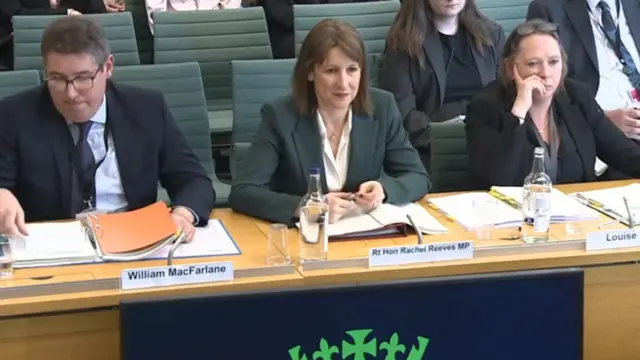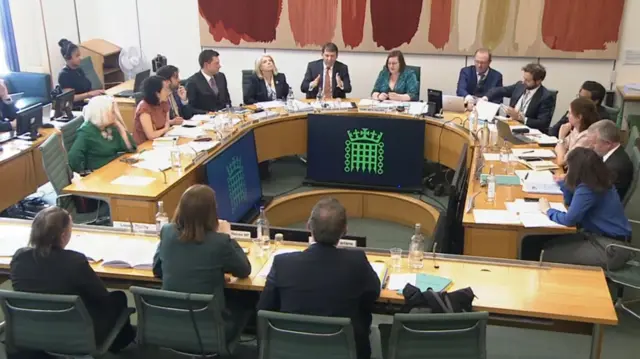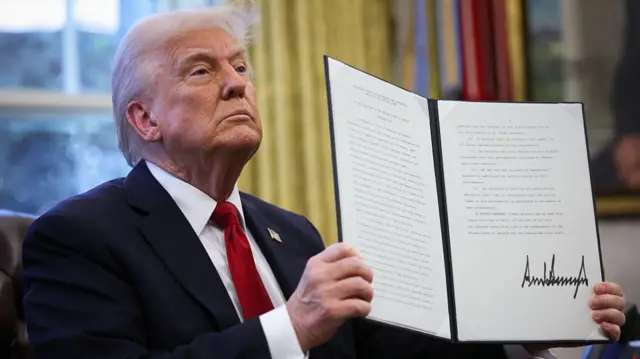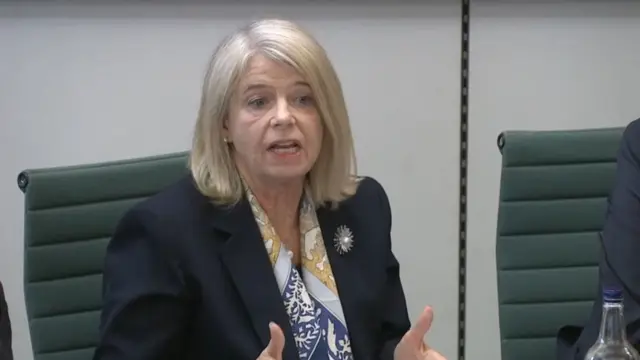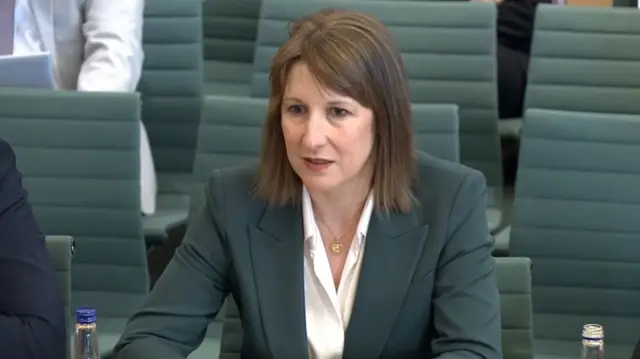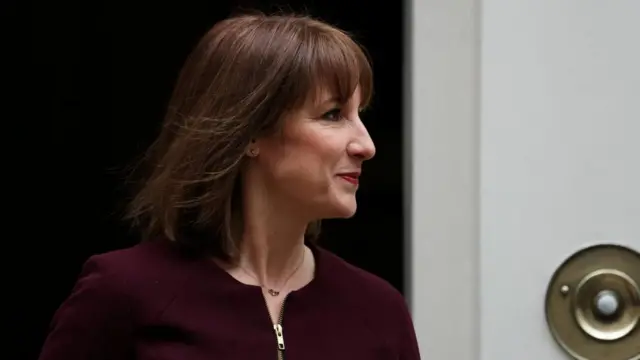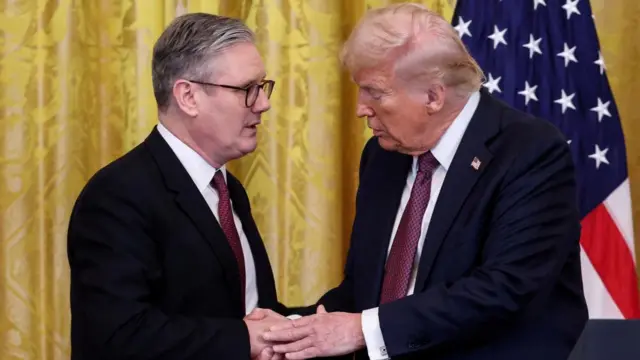Tariffs and economic prospects dominate political agendapublished at 17:03 British Summer Time 2 April
 Adam Durbin
Adam Durbin
Live reporter
It's been a busy afternoon in Westminster, as Wednesdays so often prove to be, with a lively PMQs session and a lengthy hearing for the chancellor.
Two major themes emerged for today's political news cycle, the state of the economy and the looming prospect of a full-blown global trade war with the US.
Keir Starmer and Kemi Badenoch clashed over the "fragile" economy, with the Tory leader pressing the prime minister on revised down forecasts for growth and living standards.
The PM hit back by citing the previous Conservative government's handling of the economy, accusing Badenoch of making up a "fantasy figure" of families being £3,500 worse off under his government.
On tariffs, Starmer reiterated the government's position that they would not reflexively respond to Donald Trump plans to introduce more import taxes.
Rachel Reeves echoed that later in the afternoon when she faced questioning at the Treasury Select Committee, saying that the UK would wait to see how other nations would answer tariffs - stressing the government would not rush into anything and risk jeopardising a possible future US-UK trade deal.

